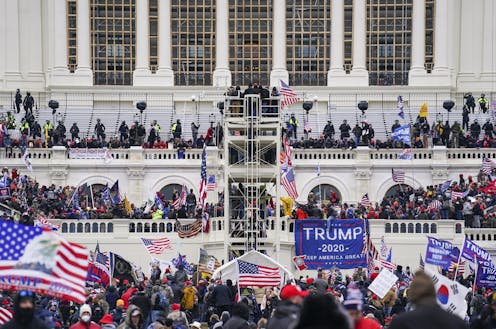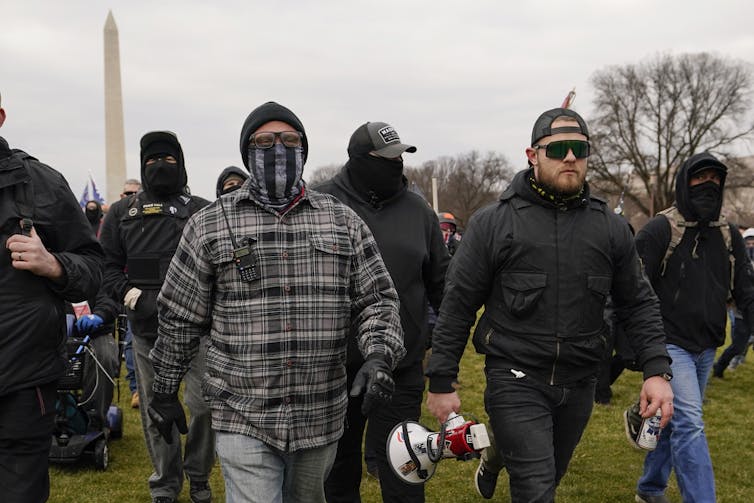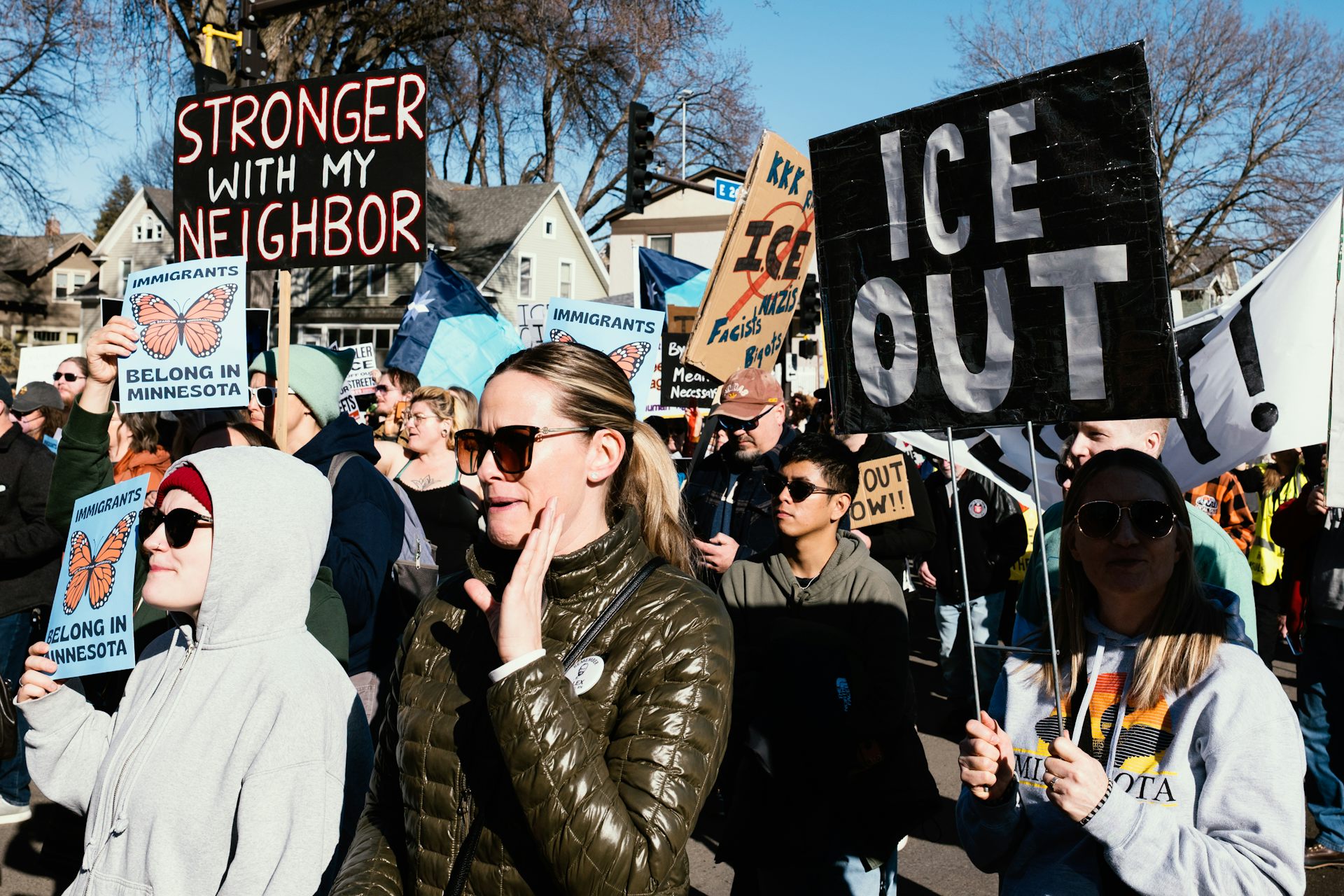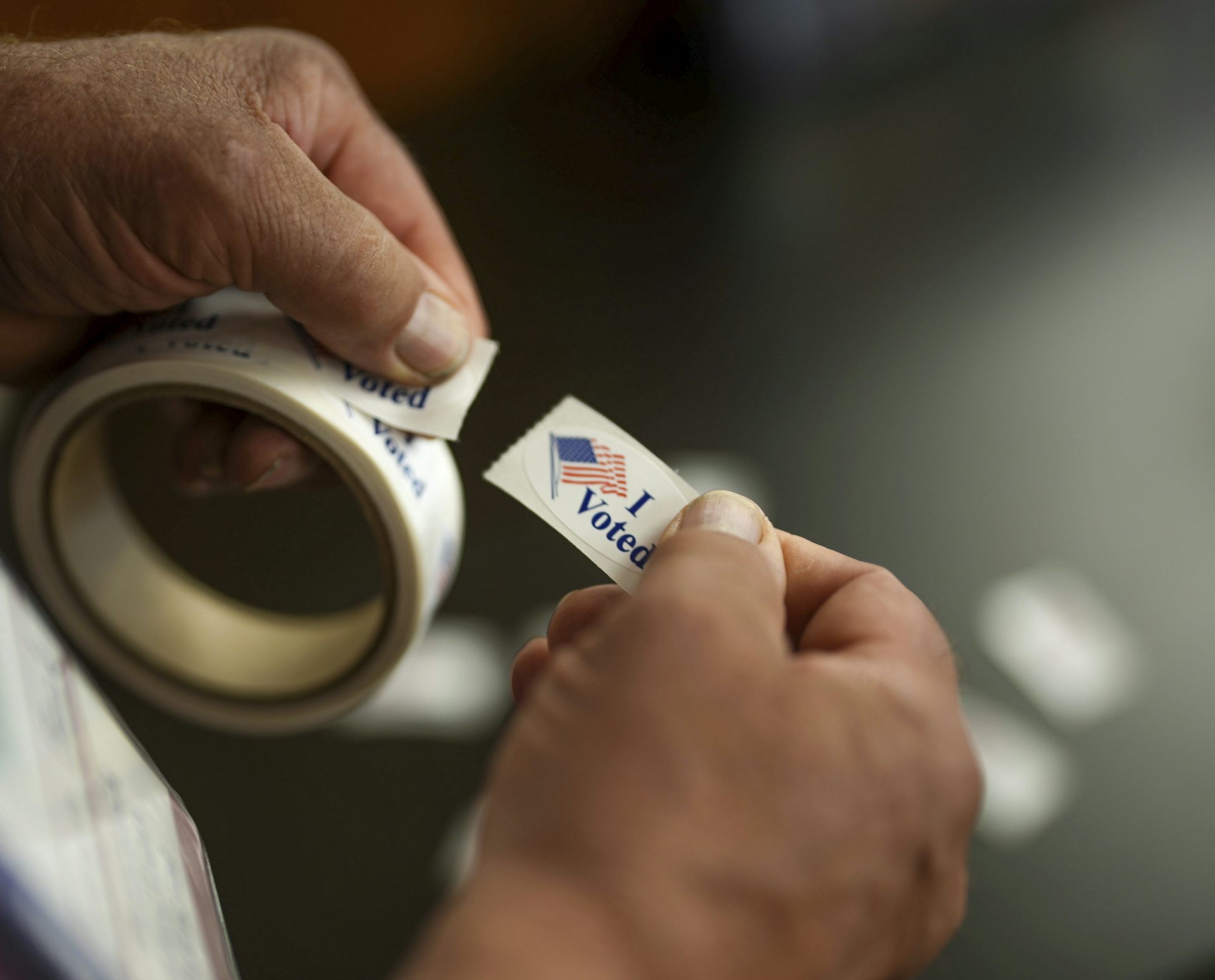What is seditious conspiracy, which is among the most serious crimes Trump pardoned?
Historically, it has been difficult to convict people of conspiring to overthrow the government or stop its normal functioning.

Several of the highest-profile figures in the Jan. 6, 2021, insurrection were charged with, and convicted of, the crime of seditious conspiracy, which is defined as the act of getting together with other people to overthrow the government. They were among the roughly 1,500 people involved in the insurrection who were pardoned or had their prison sentences commuted by Donald Trump on his first day in office.
Seditious conspiracy is a serious crime of conspiring to overthrow the government or stop its normal functioning. Historically, seditious conspiracy has been difficult to successfully prosecute.
In 2009, for example, a state judge ruled that prosecutors had failed to provide sufficient evidence for members of the Michigan Hutaree militia to go to trial on that charge. Certain militia members had been accused of plotting violence against police officers. While some members faced other charges for their actions, the judge determined that a plot against law enforcement was not sufficient to support charges of attempting to overthrow the government.
In contrast, the U.S. Department of Justice charged 18 people associated with the Jan. 6 attack on the U.S. Capitol with that crime, asserting that they had intended to “oppose by force the lawful transfer of presidential power” or had committed other actions that would undermine the entire system of government.
Of those 18, four pleaded guilty, and 10 were found guilty at trial. The remaining four were found not guilty of seditious conspiracy but were convicted of other crimes that were related to the insurrection.
Capitol entry not required
Oath Keepers militia leader Stewart Rhodes’ seditious conspiracy conviction was especially significant because, unlike some other defendants, Rhodes did not physically enter the Capitol building. He was instead in “the restricted area of Capitol grounds,” according to a Justice Department statement.
His conviction was based in part on his communications, including text messages, both before Jan. 6 and on the day itself. Prosecutors successfully argued that these communications were part of a broader conspiracy to disrupt the election certification by organizing and encouraging others to participate in more direct action.

Militias respond to convictions – and clemency
Many observers believed successful prosecutions for these charges sent a strong message that violence against a democratically elected government was not acceptable.
Scholars of militia activity like me saw a period of relative quiet through much of Joe Biden’s presidency, which was, in part, likely due to the consequences the Jan. 6 defendants faced.
Some groups, however, continued social media discussions of their beliefs that the 2020 election had been “stolen,” as Trump continues to falsely claim, and which was used as justification by militia members for their attack. Trump himself said publicly he thought the defendants were unjustly persecuted and promised to pardon them if and when he returned to power.
The full effect that the pardons will have on militia actors and related groups in coming years is uncertain: Will the pardons send the message to all Americans that political violence is acceptable, or at least that it can be overlooked or forgiven if the right political figures are in power?
Amy Cooter does not work for, consult, own shares in or receive funding from any company or organization that would benefit from this article, and has disclosed no relevant affiliations beyond their academic appointment.
Read These Next
Cuba’s speedboat shootout recalls long history of exile groups engaged in covert ops aimed at regime
From the 1960s onward, dissident Cubans in exile have sought to undermine the government in Havana −…
Will AI accelerate or undermine the way humans have always innovated?
An anthropologist’s new book lays out the formula for human innovation, from stone tools to supercomputers.…
Minneapolis united when federal immigration operations surged – reflecting a long tradition of mutua
Minnesotans from all walks of life, including suburban moms, veterans and protest novices, have bucked …






